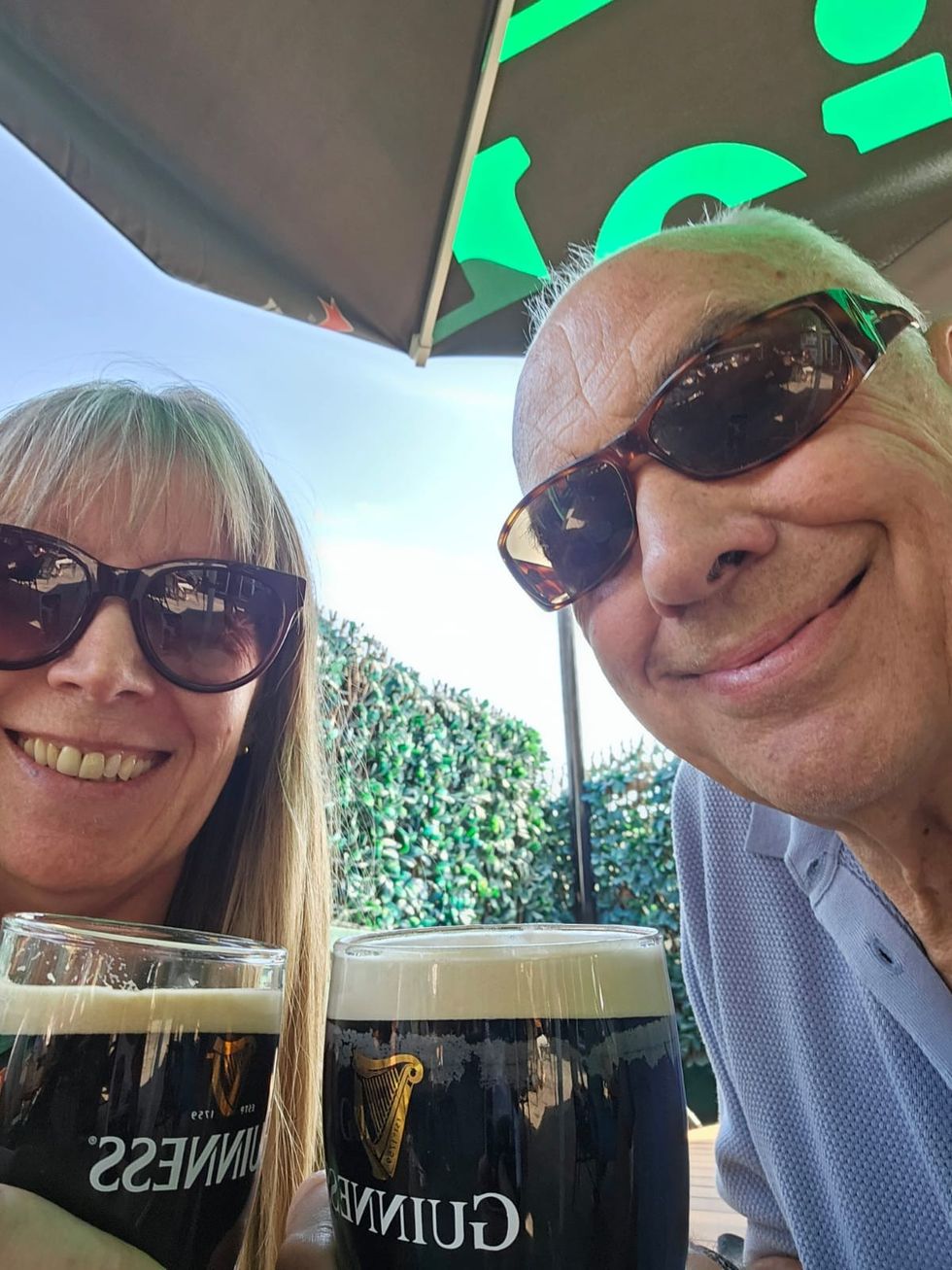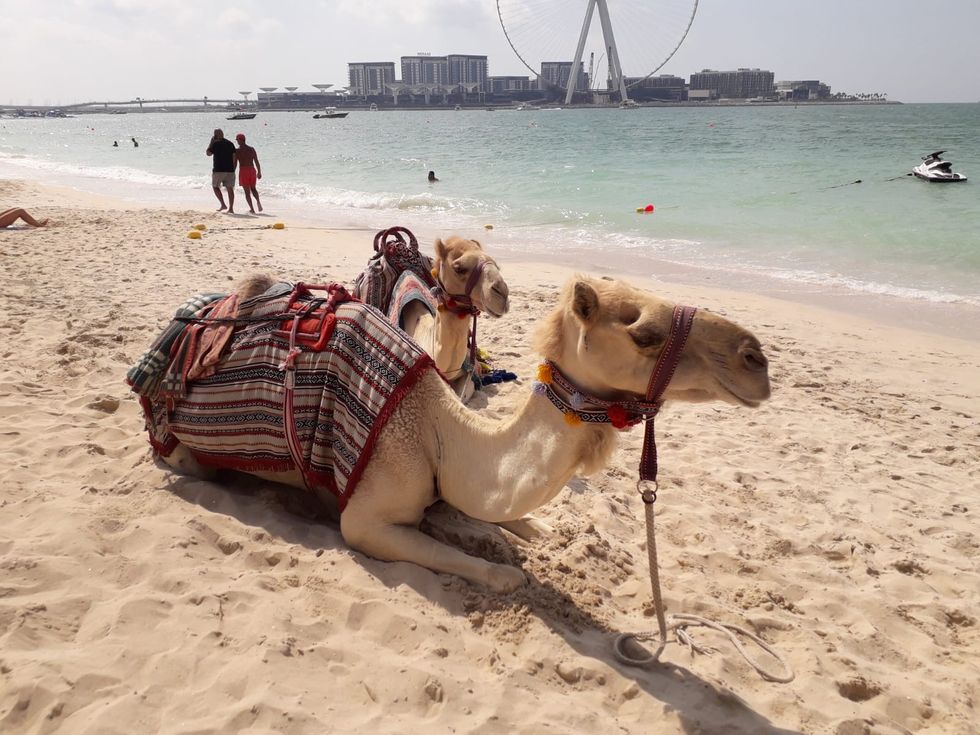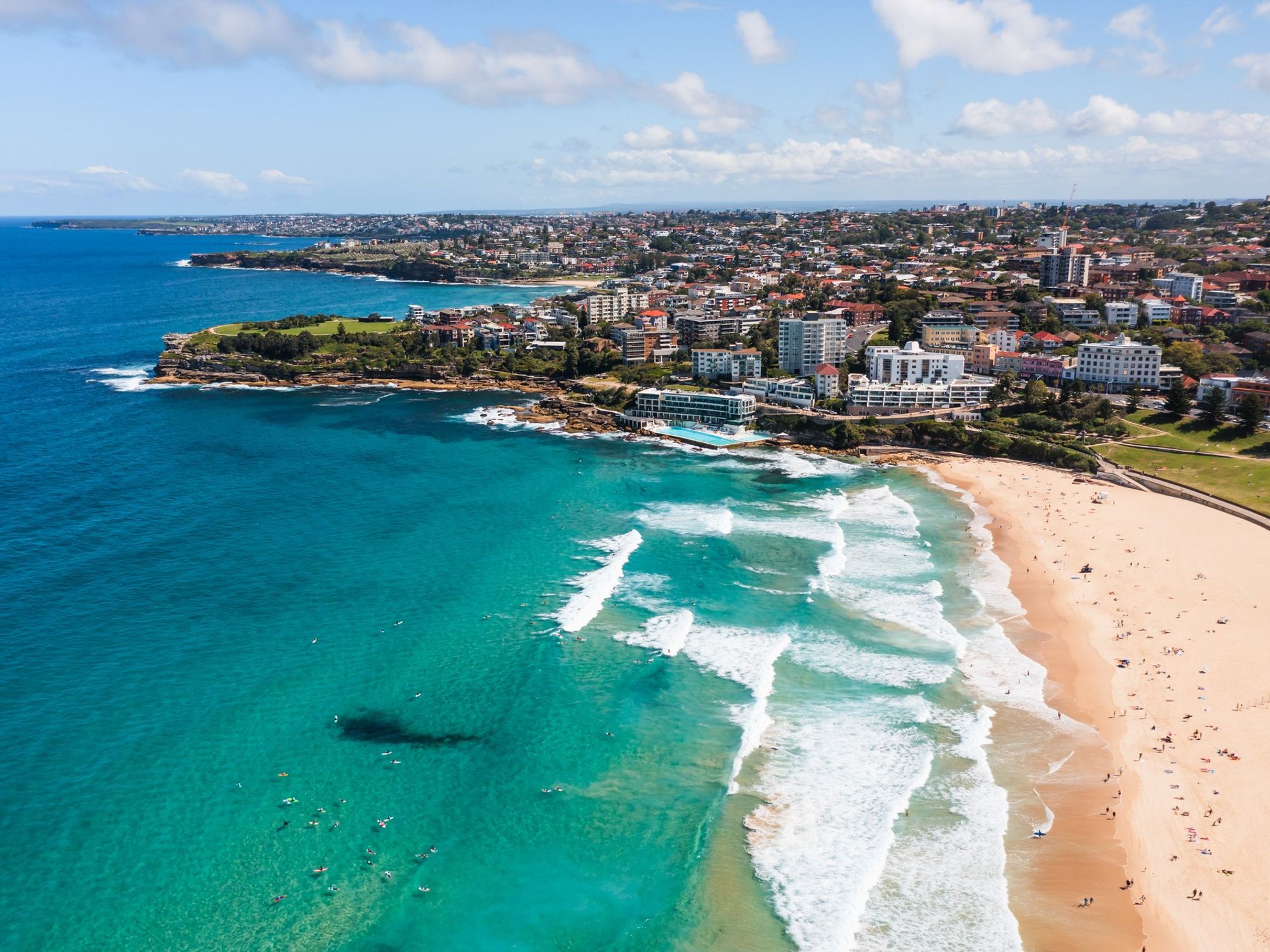An expat in Dubai told Britons that it's a 'wonderful' place to live - 'it's a bit of a bubble'
Catherine Gilling / GETTY IMAGES
GB News is talking to British expats across Europe and the world who have exclusively revealed the best places to live, tips and tricks for moving abroad, and the potential pitfalls to avoid. This week, an expat in Dubai revealed what shocked her most about life in the UAE city
Don't Miss
Most Read
Trending on GB News
Dubai is a popular holiday destination for those who want to bask in the sun, shop until they drop, and enjoy limitless culinary delights.
Catherine Gilling, 60, an English teacher living in Herefordshire, decided to uproot her life and relocate to Dubai in 2018. She spoke to GB News about why she took the plunge, how she has adjusted, and the best things about her new life.
Despite being very well-travelled, the Middle East is somewhere Catherine had never explored.
She was keen to fill the “gap” in her knowledge about this part of the world, and become more of a global citizen in the process. Catherine initially wanted to live in Dubai for two years, but six years on is just as in love with the place as she was when she first arrived.

Expats enjoy visiting bars in Dubai - 'there are so many places you can go that have a license to serve alcohol'
Catherine Gilling
In Dubai, Catherine has been teaching the International Baccalaureate to students "from every culture and every region of the world".
She said: "It's been such a blessing - it really has because I'm learning at the same time as teaching."
As well as the opportunity to explore an entirely new place, “the lure to come out to Dubai was also climate - obviously,” she told GB News. "The tax-free salary was also a very big pull.”
Even after speaking to others who had made the move, Catherine found that life in Dubai was rather different from what she expected. She said: “I thought it would be restrictive. As a Western, Christian woman, I was expecting far more difficulties than I ever experienced.
"I never expected this culture of kindness and tolerance - which are actually government initiatives. It really filters through society too. Elderly people are treated with a certain respect and reverence that you unfortunately don’t see very much back in the UK.”
According to Catherine, people are also much calmer, and arguments with strangers are practically unheard of. She said: “Nobody demonstrates anger or road rage here, it’s just not done. I mean, it’s just a wonderfully polite, civilized culture. It’s a really nice place to be.”
Catherine feels totally safe too. She said: “You’re perfectly safe as a single female walking the streets. If you leave your handbag in a supermarket, nobody is going to touch it. It’s a bit of a bubble, so much so that if we take children on international visits, we have to prepare them because not everywhere is like this."
As well as the people and the current of kindness that flows through the city, Catherine loves the spiritual side of Dubai.
While Islam is the predominant religion in the UAE, the expat has found that all religions are celebrated. She said: “Everyone finishes work early on a Friday - everyone has the same holy day. It doesn’t matter what faith you are, you’re given time off to be spiritual.”
Catherine has met lots of people in her six years living in Dubai, and British people need not worry about making friends - “there are so many expats here".
She said: “You can join clubs and societies much like you would back at home, and venues hold events like Ladies Nights where you can meet people.”
Catherine shared that expats often form close friendships through work because they spend so much time there.
Speaking of work, the expat said: “I didn’t know how hard people work here. One of the things that was said to me when I first moved here was that if you’re from the West, you should expect to work your regular day and then half as much again.”
But with hard work comes major rewards. A major pull for expats is the tax-free income in the UAE. Catherine said: “There are rumours that it won’t go on forever, but right now it’s tax-free income - so what you earn, you earn.”
Her company also gives her a housing allowance, and she pays her rent out of that. What's more, if she wants to hop on a plane and visit loved ones in the UK Catherine's place of work will pay for one return flight per year - and this kind of practice is common.
As for healthcare, the expat assured those considering the move that it’s "very good" in Dubai.
"If you come out here and you’re employed by a company, you will have private healthcare and I have to say it really is fantastic," she revealed. "And the hospitals are like five-star hotels. It’s very good if you have medical insurance.”
As for what Catherine does when she's not working, she revealed that many expats enjoy sampling the delicious cuisine the city has to offer.
She said: “The food here is very, very good. Generally speaking, you can get every sort of cuisine here.”
For those who enjoy a tipple, Catherine confirmed that expats can enjoy alcohol in Dubai - as long as they aren’t silly about it.
She said: “There are hotels, restaurants, Irish bars - there’s so many places you can go that have a license to serve alcohol.”
But the drinking culture is far from what it is in the UK. Catherine said: “Most people eat while they drink - it’s less of a thing to just go out for drinks here. It’s not in the culture. You wouldn’t get inebriated here.”
Alcohol is also "really expensive" in Dubai, and “there are other things people want to do with their time and money here”. Gyms are “superb”, and often people use these as a social hub.
Plenty of expats spend their time at the malls too. But there’s a huge distinction between malls in the UK and malls in Dubai.
“The malls are indoor complexes, not just shops," Catherine explained. "In the very hot months, they’re the only places you can go to really, as they’re air-conditioned throughout.”
Catherine said: “They’ve got cinemas, they’ve got ice skating - they’ve even got skiing, with snow from snow-making machines. Give them a challenge out here and they’ll do it.”
Malls are hugely integral to Dubai living because air-conditioned spaces are an absolute must.
Catherine said: "You think you know the meaning of the word hot, but you don’t know dessert hot until you get here.
“Certainly for four months of the year, it’s pretty much unbearable. You constantly operate within an air-conditioned environment. It can get to 50C in July and August.
“However, having said that, for five months of the year it’s like the very best summer’s day in the UK every day.”
For those who can take the heat, Catherine said that it's a wonderful place to be - but gave a word of warning to middle-aged Britons considering the move. According to the expat, Dubai is not a “forever home”, but a “temporary home in the sun”.
LATEST DEVELOPMENTS

Camels are seen as a symbol of Dubai's heritage
Catherine Gilling
While Catherine “put on her travelling boots” in her 50s after her four children had completed the British education system, the expat revealed that the city is more suited for people in their 20s and 30s.
For young expats keen to make a career for themselves, Catherine advised: “If you are qualified, whatever field you work in, it’s a great opportunity. If you’ve got a British university degree, they’ll be very interested in you.
“The opportunities for advancement are here. You can climb the ladder quickly if you’re well-qualified and work hard. I think you’ll probably find that opportunities here open up quicker than they do back in the UK.
“But I don’t know how people would find it if they were thinking of coming here at the end of their career. I don’t think the opportunities would be there really. I came out here at age 55 and I was one of the oldest in the cohort that came out.”
For those looking to retire in Dubai, Catherine suggested that this is rather uncommon for expats. “You would have to be on a Golden Visa Scheme," she explained, "but in a nutshell, you come here, work very hard, and get paid well, but once your term of work ends you tend to go back home. People don’t really retire here - unless they’re immensely wealthy.
"It’s quite hard though - I know people who have worked here for 40-odd years and have made their lives here, but when their working career comes to an end they are expected to go. You don’t see many elderly expats here at all.”
Britons looking for a few years of sun-soaked living should take the plunge though. Asked whether Catherine would recommend moving to Dubai, the expat suggested that it’s a place for the young. She said: "It's a great experience, and I would recommend it to any of the youth who feel that it's just too hard to make a go of it in the UK right now."
Catherine Gilling is also the author of the biography of metal sculptor Walenty Pytel.
Moving to Dubai
What you need to know
According to expat Catherine, moving to Dubai is a glorious prospect for those who want to enjoy the sun and build their careers. Britons can settle in easily as English is very widely spoken and expat communities are huge. However, before relocating, there are some things expats must know.
Pactific Prime Insurance said: "Expats from the UK moving to Dubai will find that the cost of living is approximately 35 per cent cheaper than in the UK. Combined with the fact that Dubai is a tax haven, this makes the emirate the perfect place for UK expats."
Britons looking to move to Dubai can consult GOV.UK for detailed information on living in the UAE and guidance on how to go about relocating. It is crucial to be aware that UAE laws and customs are very different from the UK, with GOV.UK warning Britons that "breaking the law can result in severe punishment, including the death penalty".
For Britons looking to drive in the UAE, you can apply to exchange your UK driving license for a UAE license in Dubai and Abu Dhabi. They can consult UK Government advice on how to do this.
GOV.UK warned: "It is illegal to drink and drive, no matter how small the amount, and your insurance is likely to be invalidated in the event of an accident."
Guidance on buying property is available on the UK Government's website, including how to choose a property and what to do if things go wrong, but prospective expats have been told that "buying a property that is being resold in the Emirates is similar to the process in the UK".
Britons were advised: "You find a property and place a formal offer, normally through the agent. If the offer is accepted then a deposit should be paid (usually 10 per cent). You will also be expected to pay a transfer fee and estate agent fees."
Renting is another option in Dubai, just ensure that you are using registered agents. In recent years, rental prices have significantly dropped, making the market more competitive.
As for obtaining citizenship in the UAE, Global Citizens Solutions offers guidance. Global Citizens Solutions explained that the pathways for attaining citizenship are descent, naturalization, marriage and exceptional merit.
Why Britons choose to live in Dubai
- Warm climate
- Huge expat community
- Tax-free income
- English-speaking
- Excellent healthcare
- Job opportunities
Possible pitfalls
- Very different drinking culture to the UK
- Stricter laws than the UK
- Suited more for young expats than middle-aged expats and retirees
- Traffic can be intense
- Lack of nature








